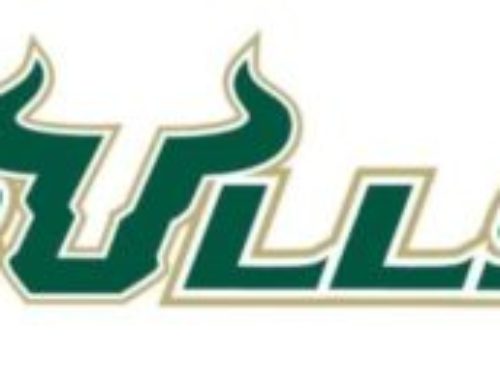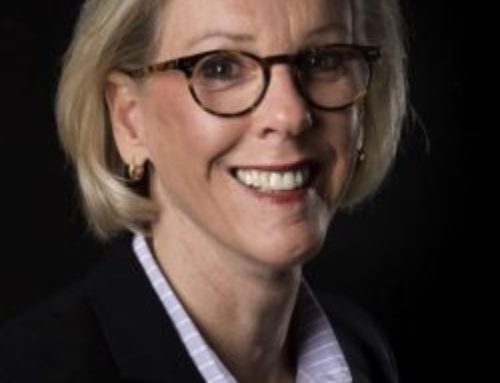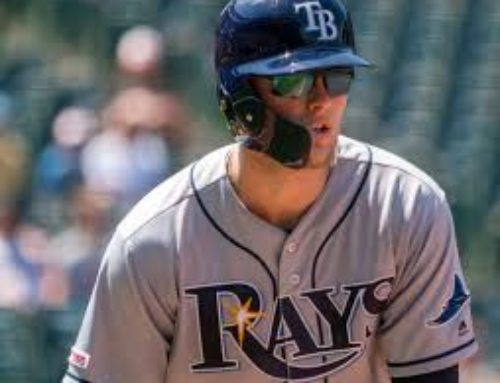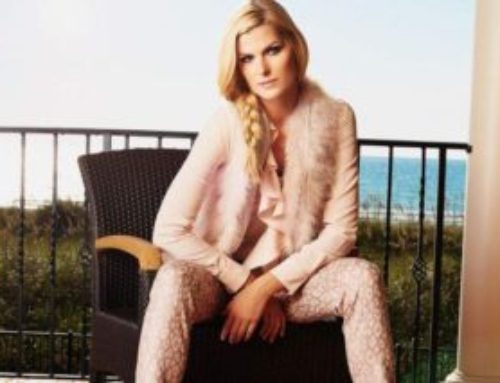Lightning’s Jon Cooper liked practicing law, but there was something he loved instead — coaching hockey.
By JOEY JOHNSTON
Tribune Staff Writer
(c) Tampa Bay Times. Originally published June 6, 2015.
TAMPA — He was a gifted orator who learned to choose his words carefully, then deliver them forcefully. He was a skilled negotiator. His preparation was meticulous. By all accounts, Jon Cooper had every characteristic that suggested a brilliant legal career.
Except the most important one.
“It kept coming back to me practicing law for the next 35 years, whether that would truly make me happy,” said Cooper, 47. “Ultimately, the answer was no. I liked being a lawyer. But there was something else I loved.”
Coaching hockey.
Cooper’s dizzying path to the Stanley Cup Final, where his Lightning face the Chicago Blackhawks in tonight’s Game 2 at Amalie Arena, seems like pure fiction.
Who reaches the National Hockey League’s pinnacle by becoming a lacrosse star at Hofstra University, working on Wall Street, then getting a law degree? Who makes his initial mark by being convinced to coach a previously ragtag high school team, then taking it to the state regionals? Hoosiers on Ice, anyone?
Who gets here by working every conceivable level of amateur and professional hockey, including a junior team in Texarkana, Texas, where he sold tickets, set up the boards and often had to flee for a practice site more than two hours away when the rodeo took over his arena?
Who does all of that?
Jon Cooper, that’s who.
“It wouldn’t matter whether his background was being a lawyer or being a janitor,” Lightning defenseman Mark Barberio said. “He knows what he’s doing. He has a system in place. He cares about the group and all of us as individuals. You want to follow a guy like that.”
Kelly Chase, a former NHL player who has known Cooper since they were teenagers, owned the Texarkana Bandits, a Tier II junior team. He gave Cooper his first full-time head-coaching position. And it wasn’t because of Cooper’s technical knowledge.
“Coop knows what makes people tick,” Chase said. “I don’t look at him and think ‘lawyer.’ He doesn’t gripe about how the kids of today are different. He says, ‘I want to reach them, so I better adapt.’ He knows they live in a YouTube, Instagram, Twitter world, so he gives them quick bursts of information. He’s phenomenal that way.
“Coop could talk to the president, the pope or a pimp and have a great conversation with any of them. And when they were done, I bet all of them would walk away saying, ‘That’s a good guy.’ ”
Hockey never was far from Cooper’s thoughts. He grew up in Prince George, in the Canadian province of British Columbia, often firing pucks into the family’s dryer in the basement. He played for his high school team at Notre Dame in Wilcox, Saskatchewan. It was an old-school setting, away from his parents, where he was taught you often are defined by life’s struggles.
Initially, he struggled to make Notre Dame’s team. In some ways, friends say, Cooper never stopped being that boy who simply looked to fill a role and claim one of the last spots on the bench. At Hofstra, he played one year of hockey, but became a standout in his other sport, lacrosse, where he once had a six-goal game.
“He was charismatic, a leader and things revolved around him, on and off the field,” said John Danowski, Cooper’s lacrosse coach at Hofstra.
But still, Marc Riccio, his teammate and roommate, said Cooper was enamored with the NHL, attending dozens of Islanders games at Nassau Coliseum. Riccio remembers Cooper’s preoccupation with studying every box score and transaction in the newspaper.
After a two-year stint of selling Prudential securities on Wall Street, Cooper opted for legal training, thinking it might help him break into NHL circles as an agent. He landed at Thomas M. Cooley Law School in Lansing, Michigan.
“I graduated before he did and I gave him my law clerk position because my boss said, ‘Hire somebody you trust and believe in,’ and that was Jon,” said Cooper’s law-school classmate, Randy Rechs, an attorney in San Diego. “He always had the ‘it’ factor and I know he would’ve been an incredible lawyer, but we’re all grateful he took this path because we can live the hockey life vicariously through him.”
Once, Cooper was taken aback when Rechs, even while not feeling well, wouldn’t join him to watch opening-night games in the NHL playoffs.
“He had this look in his eye like it was his favorite night of the year,” Rechs said.
Michael O’Connor, another Cooley Law classmate who’s an attorney in Pasadena, California, jokingly said they often bypassed the library for dimly lit study sessions at Dooley’s Bar, a Lansing institution, which not coincidentally was a great place to watch hockey games.
Despite all of that, O’Connor said Cooper would’ve become an outstanding trial attorney.“No matter what, Jon doesn’t change his demeanor,” O’Connor said. “To be a great trial attorney, you must be yourself. He’s very genuine. People want to be friends with him.”
Thomas Brennan, a district judge in Michigan who’s now retired, noticed the same qualities when Cooper became a $250-a-week public defender, largely working with indigent clients, in his court.
“He established client control and they were always appreciative of his representation,” Brennan said. “He had the ability to negotiate with the prosecutor in an inoffensive way. They would give away the store to him.
“He would’ve been a damn good lawyer. He would’ve made a lot of money and he would’ve won a lot of arguments. As it turns out, he’s using the same talent and ability he would’ve used to be a great lawyer as a great hockey coach.”
Brennan helped to influence that path.
Brennan recruited Cooper to play for his adult hockey team of lawyers, the “Legal Eagles,” and they nicknamed him “Fancy Pants” because of his puck prowess. Brennan later asked Cooper if he would lead his son’s team at Lansing Central Catholic, a 17-loss squad that needed a coach.
Cooper agreed. Cooper molded the team into a winner, guiding it to the regional round in what Brennan described as a “magical year.”
“Those kids would’ve skated through the wall for Jon,” Brennan said.
Even though Cooper had established a sole-proprietor law practice by then, he was spending most of his time with hockey, whether it was high school, a travel team or the Metro Jets of Fraser, Michigan, which won the Tier II national title.
By then, Chase had noticed his work, preparing to offer him a junior hockey position and send his career path on an upward trajectory. Cooper had also attracted the attention of a woman who, almost more than anyone, understood his passion.
Cooper’s wife of nearly 10 years, Jessie, has experienced nearly every step of this wild ride. She, too, is a lawyer, having graduated from Michigan State University law school. She imagined a quiet life near her hometown of Cadillac, Michigan, where she knew everyone, where she loved to relax by the lake.
Instead, her world became an unpredictable adventure, traversing the hockey teams in Texarkana, St. Louis, Green Bay, Norfolk, Syracuse and now Tampa. She has cherished every minute.
“People had questions and thought we were crazy,” she said. “But too many people follow a predictable route and they aren’t happy. I love how Jon has always followed his heart and passion. When you do that, I think things take care of themselves.”
They were set up on a blind date by Jill Kopec, Cooper’s legal mentor, whose firm employed Jessie during law school. They fell for each other even though Jessie, the daughter of an English teacher, described herself as a “nerd who knew next to nothing about sports.”
She quickly learned the hockey lifestyle and now loves the sport, although she loves even more her husband’s ability to make her feel important and keep her involved.
She describes Cooper as a “romantic.” He proposed on the dock that overlooks her parents’ lake, hiding the engagement ring in a glass of champagne.
“I was nervous and shaking and completely shocked, so I didn’t hear all the words but I think it was something like, ‘You’re the girl for me and I want to spend the rest of my life with you,’ ” she said.
Her father once told her to “focus on what people do, not what they say.” Cooper’s actions, she said, speak to her constantly. She calls him “a great husband who knows how to treat a wife and be a great father” to their three small children. She describes him as a man who values his privacy, yet is always regarded as the life of the party.
Cooper takes her “out for drinks with buddies and places where most guys don’t take their wives.” They make time for family outings. He surprises her by filling her car with gas. He brings back little presents from the road, letting her know he was thinking about her.
“That translates into hockey, where he has these incredible personal skills, this ability to read people, to just listen to them and to learn from that,” she said. “The little things mean a lot.”
Lightning right winger Ryan Callahan knows about the little things. Last season, he was traded from the New York Rangers, after eight seasons on Broadway, in a swap for Marty St. Louis.
“I was emotional, confused, a lot of things racing through my mind,” Callahan said.
As Callahan arrived at Tampa International Airport, “looking for the car service,” he exited the tram and stopped in his tracks.
There was his driver, Jon Cooper, his new head coach.
“It put me at ease,” Callahan said. “It said so much about his character and told me how much he cared about his players. What other head coach would do that?”
It’s the path not taken, a constant in Cooper’s career. In 2008, Cooper emerged as a top candidate for the Green Bay Gamblers of the junior United States Hockey League. Gamblers president Brendan Bruss, new on the job, wondered about taking a safer route.
Then, on the advice of a management consultant, he gave psychological tests to the three finalists. It was meant to reveal personal style, how each coach was truly wired. Cooper became the clear choice, showing strength in people management, promotion of the product, drive and competitiveness.
“The magic of Jon is it all comes so naturally for him,” Bruss said. “He knows people. He knows how to win. He knows how to build a team — from the first spot to the last spot — and how to establish roles.
“As Jon has progressed, there’s always the question, ‘How is he going to do at this level?’ I think he has been asked that question at four different levels. When will people learn? It’s not based on his experience or the talent. It’s how he develops a team.”
Cooper provides structure, but also a degree of freedom. It’s a conversation, not a dictatorship. As he once joked, can he really teach Steven Stamkos how to score goals?
But putting Stamkos in the right situations, giving him confidence, listening to his needs, letting him lead the locker room … yes, Cooper can do all of that.
By now, Cooper could have been a well-established lawyer, perhaps a star in the courtroom. But think about all that he would’ve missed.
“Anybody who would leave a law firm to go coach hockey in Texarkana, that shows me passion,” said Lightning associate coach Rick Bowness, a head coach with five NHL organizations.
“I’m still a lawyer,” Cooper said. “I just don’t practice.”
Instead, he applies those lessons on the ice, making a case for one of the most incredible coaching journeys ever witnessed. Soon, it could result in a Stanley Cup.
Did he make the right decision? It’s difficult to argue otherwise when you witness his electrifying hockey team, his prideful friends and his happy family.
The legal training enhanced his public-speaking ability and taught him to be quick on his feet. At the top of his game, surrounded by adulation, fame and what’s certain to be a contract with a few more zeros added, parts of Cooper’s journey almost seem like another life.
But it wasn’t that long ago. And it made him into the coach he is today.
“I know where I came from,” Cooper said. “I’ll never forget that.”





